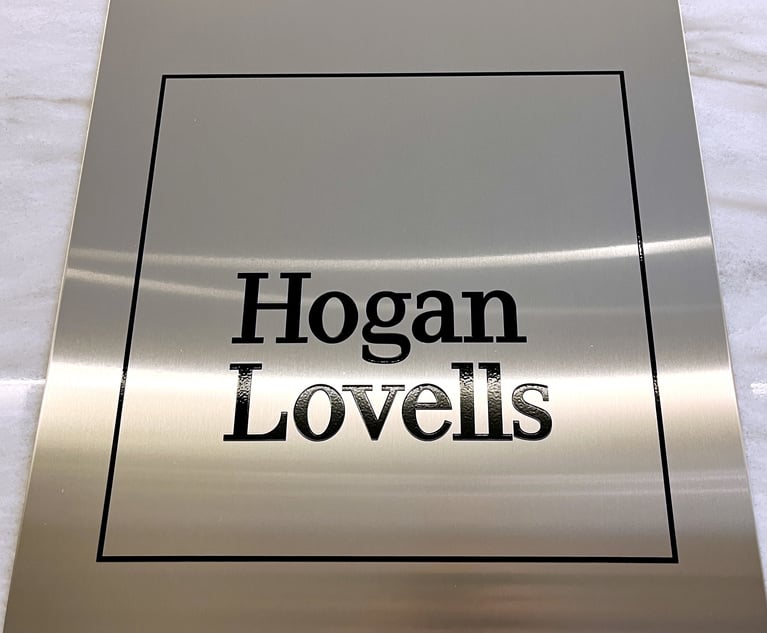Blockchain Company Ripple Scores Early Win in Cryptocurrency Suit
San Francisco-based blockchain company Ripple Labs Inc. has scored an early victory in its legal spat with rival R3 over a cryptocurrency deal worth…
October 16, 2017 at 02:59 PM
3 minute read

San Francisco-based blockchain company Ripple Labs Inc. has scored an early victory in its legal spat with rival R3 over a cryptocurrency deal worth more than $1 billion.
On Friday, Judge Joseph Slights of the Delaware Court of Chancery ruled from the bench to dismiss R3's lawsuit against Ripple on jurisdictional grounds.
R3 sued in early September after Ripple unilaterally terminated an options contract it negotiated with R3 for 5 billion XRP, a cryptocurrency developed by Ripple that—like Bitcoin and other digital assets—has exploded in value over the past year.
The contract gave R3 the right to purchase that amount of XRP for $0.0085 per unit, which would total $42.5 million. According to R3's lawsuit, the cryptocurrency is now trading at between 22 cents and 23 cents per coin, making the deal worth roughly $1.1 billion.
The contract was executed between R3, Ripple and a Ripple subsidiary called XRP II. Ripple, represented by Quinn Emanuel Urquhart & Sullivan attorney David Grable, argued the case did not belong in Delaware because XRP II is incorporated in California.
Although not a ruling on the merits, the decision is a speed bump for New York-headquartered R3's suit and increases the chance the case will be adjudicated back on Ripple's home turf in San Francisco. Ripple filed a complaint in San Francisco Superior Court last month for declaratory judgement to nullify the options contract, just after R3 filed suit in Delaware.
In a tweet on Friday, R3 said: “Jurisdiction to be decided between New York / California. Stay tuned.”
The company, which is represented in the lawsuit by Margaret Keeley and Daniel Shanahan of Williams & Connolly, did not immediately respond to a request for comment. Keeley, reached by phone on Monday, declined to comment.
R3 and Ripple initially seemed to view each other as playing complementary roles. Ripple markets several financial blockchain products focused on making cross-border money transfers faster and less error-prone. R3 billed itself as a blockchain consortium of global financial institutions, and Ripple entered into a partnership deal last year hoping R3 would help connect it with more banks. The XRP options contract was a part of that deal.
But Ripple claims it canceled the contract because R3 failed to deliver on its ends of the deal.
“Almost immediately after the agreements were signed, R3 disappeared as a partner,” according to the lawsuit. Ripple also notes that several big-name financial institutions– including JPMorgan Chase, Goldman Sachs, and Morgan Stanley– left R3's consortium after their partnership was formed, decreasing the deal's “value proposition.”
Meanwhile, R3 has moved forward with developing its own blockchain software products, although the two don't appear to be competing in the same space.
On Oct. 3, R3 announced the launch of Corda 1.0, which aims to allow financial institutions and other businesses to create “smart contracts.” The software “records, manages and executes institutions' financial agreements in perfect synchrony with their peers, creating a world of frictionless commerce,” the company said in a press release.
R3 earlier this year announced it raised $107 million as part of a Series A fund raise.
This content has been archived. It is available through our partners, LexisNexis® and Bloomberg Law.
To view this content, please continue to their sites.
Not a Lexis Subscriber?
Subscribe Now
Not a Bloomberg Law Subscriber?
Subscribe Now
NOT FOR REPRINT
© 2025 ALM Global, LLC, All Rights Reserved. Request academic re-use from www.copyright.com. All other uses, submit a request to [email protected]. For more information visit Asset & Logo Licensing.
You Might Like
View All
Hogan Lovells Hires Quinn Emanuel IP Litigator in San Francisco


‘Facebook’s Descent Into Toxic Masculinity’ Prompts Stanford Professor to Drop Meta as Client
6 minute read
Music App Denied Injunction Against Apple Over Alleged Scheme to Block Its Access to App Store
Trending Stories
- 1'A Death Sentence for TikTok'?: Litigators and Experts Weigh Impact of Potential Ban on Creators and Data Privacy
- 2Bribery Case Against Former Lt. Gov. Brian Benjamin Is Dropped
- 3‘Extremely Disturbing’: AI Firms Face Class Action by ‘Taskers’ Exposed to Traumatic Content
- 4State Appeals Court Revives BraunHagey Lawsuit Alleging $4.2M Unlawful Wire to China
- 5Invoking Trump, AG Bonta Reminds Lawyers of Duties to Noncitizens in Plea Dealing
Who Got The Work
J. Brugh Lower of Gibbons has entered an appearance for industrial equipment supplier Devco Corporation in a pending trademark infringement lawsuit. The suit, accusing the defendant of selling knock-off Graco products, was filed Dec. 18 in New Jersey District Court by Rivkin Radler on behalf of Graco Inc. and Graco Minnesota. The case, assigned to U.S. District Judge Zahid N. Quraishi, is 3:24-cv-11294, Graco Inc. et al v. Devco Corporation.
Who Got The Work
Rebecca Maller-Stein and Kent A. Yalowitz of Arnold & Porter Kaye Scholer have entered their appearances for Hanaco Venture Capital and its executives, Lior Prosor and David Frankel, in a pending securities lawsuit. The action, filed on Dec. 24 in New York Southern District Court by Zell, Aron & Co. on behalf of Goldeneye Advisors, accuses the defendants of negligently and fraudulently managing the plaintiff's $1 million investment. The case, assigned to U.S. District Judge Vernon S. Broderick, is 1:24-cv-09918, Goldeneye Advisors, LLC v. Hanaco Venture Capital, Ltd. et al.
Who Got The Work
Attorneys from A&O Shearman has stepped in as defense counsel for Toronto-Dominion Bank and other defendants in a pending securities class action. The suit, filed Dec. 11 in New York Southern District Court by Bleichmar Fonti & Auld, accuses the defendants of concealing the bank's 'pervasive' deficiencies in regards to its compliance with the Bank Secrecy Act and the quality of its anti-money laundering controls. The case, assigned to U.S. District Judge Arun Subramanian, is 1:24-cv-09445, Gonzalez v. The Toronto-Dominion Bank et al.
Who Got The Work
Crown Castle International, a Pennsylvania company providing shared communications infrastructure, has turned to Luke D. Wolf of Gordon Rees Scully Mansukhani to fend off a pending breach-of-contract lawsuit. The court action, filed Nov. 25 in Michigan Eastern District Court by Hooper Hathaway PC on behalf of The Town Residences LLC, accuses Crown Castle of failing to transfer approximately $30,000 in utility payments from T-Mobile in breach of a roof-top lease and assignment agreement. The case, assigned to U.S. District Judge Susan K. Declercq, is 2:24-cv-13131, The Town Residences LLC v. T-Mobile US, Inc. et al.
Who Got The Work
Wilfred P. Coronato and Daniel M. Schwartz of McCarter & English have stepped in as defense counsel to Electrolux Home Products Inc. in a pending product liability lawsuit. The court action, filed Nov. 26 in New York Eastern District Court by Poulos Lopiccolo PC and Nagel Rice LLP on behalf of David Stern, alleges that the defendant's refrigerators’ drawers and shelving repeatedly break and fall apart within months after purchase. The case, assigned to U.S. District Judge Joan M. Azrack, is 2:24-cv-08204, Stern v. Electrolux Home Products, Inc.
Featured Firms
Law Offices of Gary Martin Hays & Associates, P.C.
(470) 294-1674
Law Offices of Mark E. Salomone
(857) 444-6468
Smith & Hassler
(713) 739-1250






